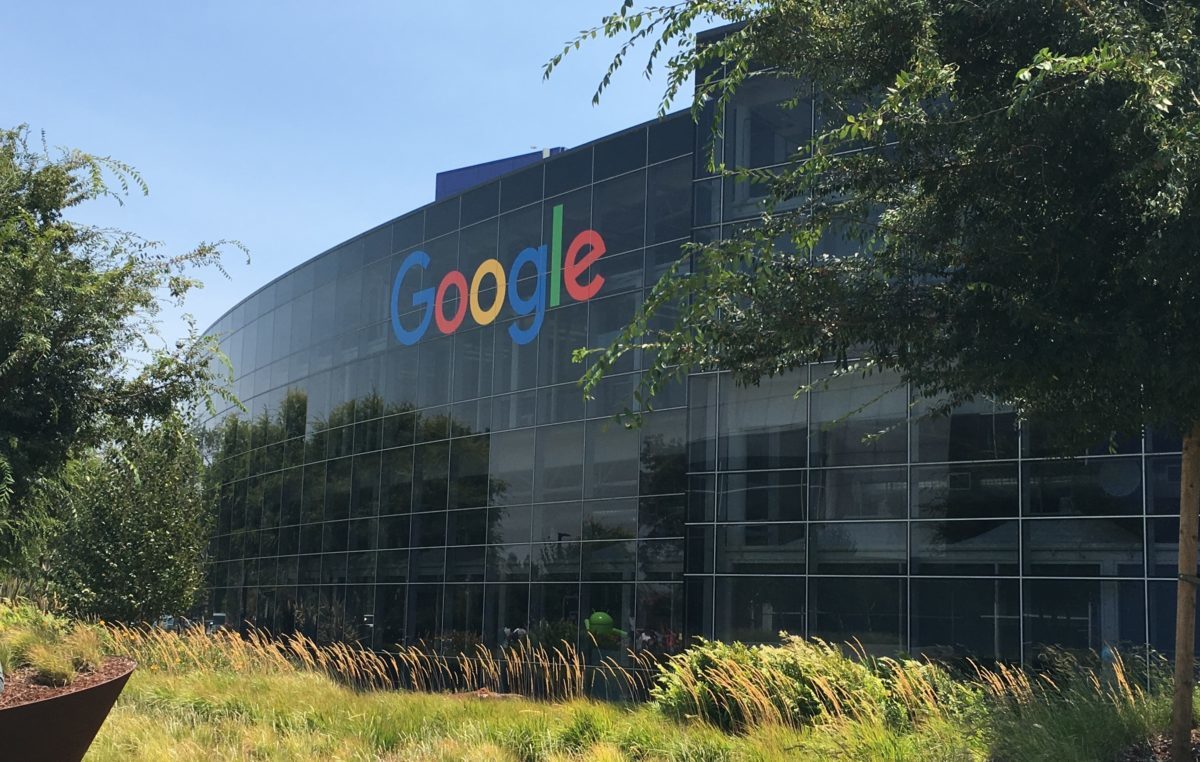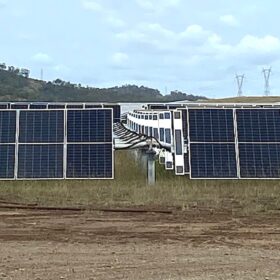From pv magazine USA
Google, in a recent update on its climate action efforts, has revealed that it aims to run all of its data centres and corporate campuses throughout the world on entirely carbon-free power by 2030.
The company also said it has eliminated its entire carbon legacy, meaning that all operational emissions before it achieved carbon neutrality in 2007 have been covered. It said the ability to make its lifetime net carbon footprint zero was made possible by the purchase of “high-quality” carbon offsets.
Carbon-free electricity
After achieving its initial renewables goal of matching all energy used with equivalent renewable generation in 2017, this move represents the next step in the equation. No longer will the energy used be just matched by renewable generation – renewables will be the only source of generation.
To achieve this, the company is pairing renewed investments in wind, solar and storage with artificial intelligence systems. This will optimise electricity demand and forecasting, all in pursuit of achieving carbon-free energy “in all locations, at all times of day.”
The renewed investment began about a year ago, when Google said that it had completed 18 new renewable energy deals, totalling 1.6 GW, for more than $2 billion. These projects, once completed, will give Google a 5.5 GW worldwide portfolio of wind and solar agreements.
Future pathways
For Google to achieve these new climate goals, most of the energy used will come from large-scale generation and power contracts. But critical to the company’s vision is creating new ways to procure clean energy.
In a recent white paper, Google said it aims to create utility programs that enable broader access to affordable clean energy. It also wants to develop new models under which multiple users can share clean energy assets.
These new approaches won’t be unique to Google. The idea is to make them replicable and scalable for other companies and customers who want to procure multi-source and multi-technology blended power purchase agreements (PPA). PPA portfolios that comprise a mix of wind and solar can help corporations extend the clean energy production hours of their portfolio, and provide risk diversification benefits.
As Jason Tundermann, VP of business development for LevelTen Energy, told pv magazine that the new opportunities in renewable-sourcing that Google is creating will be just as important as the energy procured.
“I think companies, like Google and Facebook, who have gone out and used their procurement power to cause the local utilities to offer more pleasing programs to their end consumers has been a really important central outcome of how they’ve used their purchasing power,” Tundermann said. “We’ve tried to come in behind and build systems that allow those sorts of policy developments to flourish by feeding them with easily digestible supply summaries and the ability to search and compare projects in their service territories. It’s amazing to see how the pieces begin to nest together, between innovators signing PPAs and then using their power to create more utility procurement pathways.”
Google has previously used its purchasing power to pressure utilities to offer more Green Tariff programs to their customers. LevelTen has helped utilities implement these types of programs by finding high-value renewable energy projects to add to the grid mix, which benefits any company looking to purchase renewables.
These same pathways will also enable multiple users to share clean energy assets. This would make it easier for small-time buyers to get together and purchase portions of a larger renewable project in their service region. Other companies, like Starbucks, Gap, and Bloomberg, have used similar buyer-aggregation methods.
Author: Tim Sylvia
This content is protected by copyright and may not be reused. If you want to cooperate with us and would like to reuse some of our content, please contact: editors@pv-magazine.com.








4 comments
By submitting this form you agree to pv magazine using your data for the purposes of publishing your comment.
Your personal data will only be disclosed or otherwise transmitted to third parties for the purposes of spam filtering or if this is necessary for technical maintenance of the website. Any other transfer to third parties will not take place unless this is justified on the basis of applicable data protection regulations or if pv magazine is legally obliged to do so.
You may revoke this consent at any time with effect for the future, in which case your personal data will be deleted immediately. Otherwise, your data will be deleted if pv magazine has processed your request or the purpose of data storage is fulfilled.
Further information on data privacy can be found in our Data Protection Policy.